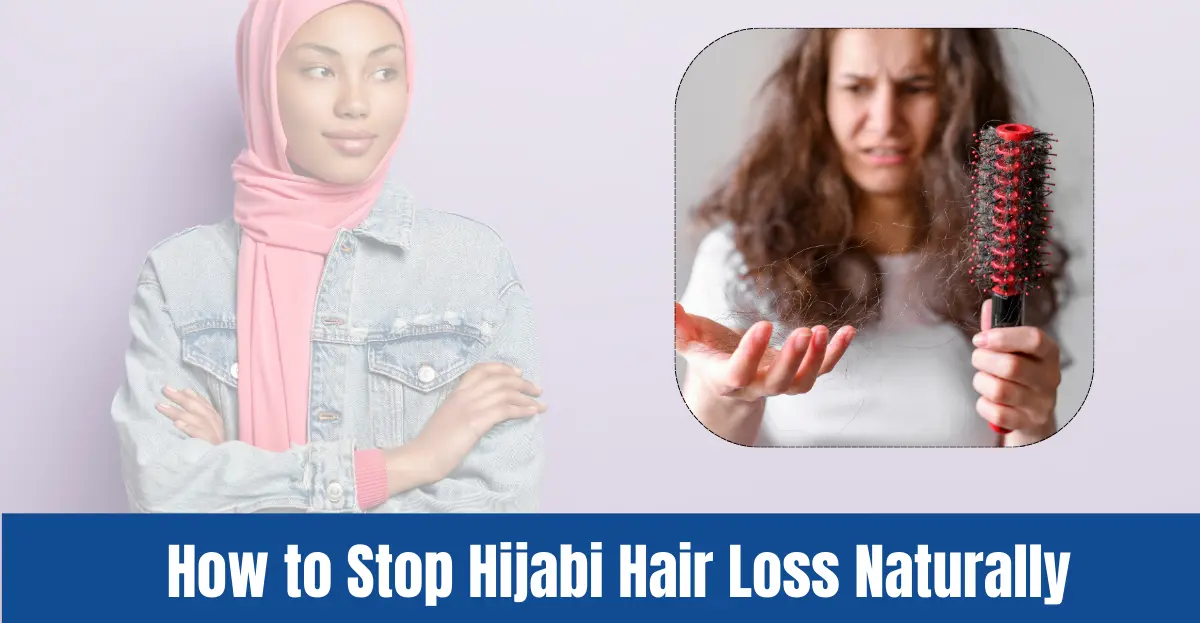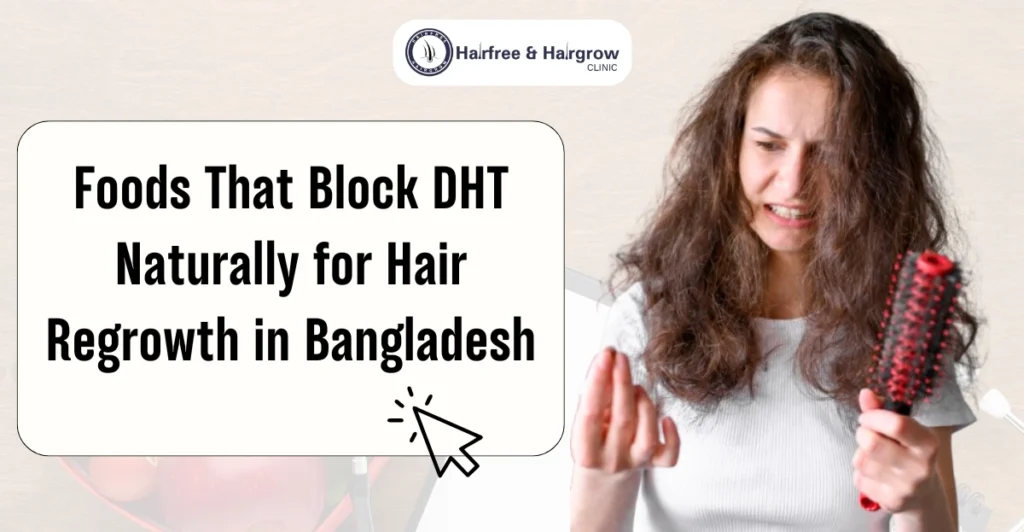Hair loss is one of the common concerns associated with hijab among most women. Wearing a hijab itself cannot be directly responsible for hair loss. Some of the practices associated with carelessness that generally develop in the process of taking care of the hair and scalp can invite hair fall.
Luckily, natural remedies for hair loss are also available. It provides treatment for hijabi hair loss, allowing the hair to remain healthy and alive.
This guide provides practical information about natural solutions for loss of hair and practical advice. It will help to stop hair loss for hijabis while under the hijab keeping the hair healthy.
Table of Contents
Common Options in Hair Loss under Hijab
It’s crucial to understand the different causes of hair loss if any prevention has to be put in place. Some of these major causes of hair fall include the following:
- Improper Hijabs Fabrics: The use of rough and/or synthetic fabrics provides friction and causes breakage and weakness of strands over a period.
- Tight styles under hijab: Tying hair too tight all the time plus too much tension on the roots causes damage and leads to a condition termed traction alopecia.
- Lack of ventilation: Covering longer hair could result in a condition where no access is available for the uncomfortable environment of the scalp. The sweat accumulates on scalp oils to create an unhealthy scalp environment.
- Neglecting Scalp Care: Lack of proper cleaning and moisturizing of the scalp leads to the formation of dandruff, clogging of follicles, and eventually thinning hair.

Natural Remedies to Prevent Hijabi Hair Loss
You need not fret about spending money on expensive treatments to treat hijab hair loss. Here are some of the most effective hijab and hair health remedies:
- Coconut Oil and Aloe Vera Mask: While nourishing the scalp with coconut oil, get rid of irritation and stimulate hair growth by using aloe vera. This combination should be applied at least once a week for maximum benefit.
- Onion Juice: Onion juice is known to be rich in sulfur, which helps strengthen hair follicles and stimulates hair re-growth. Massage it into your scalp and wash it off after 30 minutes.
- Fenugreek Seeds: Soak fenugreek seeds overnight and then grind them into a paste. Apply the paste on the scalp. This remedy helps to reduce hair fall and promotes a healthy scalp.
- Tea Tree Oil: Add a few drops of tea tree oil to a carrier oil, for example, olive oil, to fight the dandruff and promote good blood circulation on the scalp.
Our Clinic Location: Hair Transplant in Dhaka
Partnering Your Hijab with the Right Fabrics
The right fabric goes a long way in how well you manage hair care under a hijab. To minimize your harrowing hair-balding experiences:
- Soft Fabrics: Breathable and natural materials such as cotton, silk, or bamboo are advisable as these fabrics reduce friction and allow air to the scalp.
- Avoid Synthetic Blends: Synthetic hijabs trap heat and moisture, which leads to scalp problems.
- An Inner Cap: An inner soft cap will act as a barrier between your hair and the hijab, stopping breakage.
Scalp Care Routine for Hijabis
A proper scalp care for hijabis routine should be instituted to take care of hair health. The following steps should be incorporated:
- Gentle Cleansing: A mild shampoo would be most appropriate for clearing the sweat and oils from the scalp. Best to avoid all those harsh chemicals that strip the natural moisture from the scalp.
- Weekly Exfoliation: With a natural scrub made out of sugar and coconut oil, you can eliminate dead skin and help enhance blood circulation.
- Regular Moisturizing: Apply light non-greasy oils such as argan oil or jojoba oil that will hydrate your scalp.
Diet and Hydration for Healthy Hair
Your diet layout will be a major determining factor in hair growth and strength. It is easy for you to maintain healthy hair with:
- Protein-rich foods: Hair is mostly keratin, which is a food group of proteins. So therefore include eggs, nuts, beans, and lean meats in your diet.
- Omega-3 Fatty Acids: Salmon, chia seeds, walnuts, etc. support healthy scalp conditions.
- Water: Enough water is life to the hair and the scalp. Eight glasses is the least to drink every day.
Read Also – Does protein powder cause hair loss?
Long-Term Prevention Tips
There are several ways through which you can prevent hair thinning naturally:
- Change Hijab Styles: Tie your hair differently so that the same spot does not get strained when you tie it every day.
- Let Hair Breathe: Remove the hijab, allowing the hair to breathe for an hour or two before coming home to remove it.
- Satin Pillowcases: Sleeping in satin pillowcases avoids the friction that can affect the hairs in sleep.
- Regular Trims: Regular trims eliminate the split ends, making the hair stronger.
Conclusion
Natural hair care for Muslim women keeps hijab-hair issues simple. Effective hijab and hair health involve an adequate scalp-care routine, natural remedies, and proper habitude. Costly products you find apply all into the making, wearing, and caring for your hair. Boost these attributes with healthy scalp tips and raise confidence.
FAQ
Wearing a hijab does not cause permanent loss of your hair. However, it can give rise to temporary thinning or traction alopecia as a result of poor hair care habits through tight hairstyles and no scalp care.
Great oils that can help prevent hijabi hair loss include coconut oil, argan oil, and tea tree oil. These oils provide nutrients to the scalp and strengthen the hair strands.
At least one to two hours of free air to your hair each day. This helps control the amount of scalp sweat and permits hair to regain its original texture.

Written By
Medical Officer & Hair Transplant Surgeon
Dr. Nazmin Sultana Nipa is a distinguished hair transplant doctor in Bangladesh, known for her advanced skills in hair restoration. As a Medical Officer and Hair Transplant Surgeon, Dr. Nipa combines her extensive experience in the field with a focus on transparency and patient-centered care.
Disclaimer
We’ve made all possible efforts to ensure that the information provided here is accurate, up-to-date and complete, however, it should not be treated as a substitute for professional medical advice, diagnosis or treatment. See Detailed Disclaimers Here.



